DUBAI: Israeli military raids, settler attacks and a vicious cycle of violence have claimed the lives of more than 662 Palestinians and 24 Israelis in the West Bank since Oct. 7, raising the specter of a new active front in a regional conflict.
The West Bank has long been a center of unrest, but recent events have led to unprecedented volatility, with the Israeli government stepping up military operations in the area, including large-scale raids by soldiers backed by armored vehicles and bulldozers in Jenin, Tulkarm and other areas.

One recent raid at a refugee camp in the city of Jenin, which houses more than 4,000 Palestinians, involved hundreds of Israeli troops and armored vehicles. Simultaneous raids were launched in Tulkarm, Tubas, Nablus and Ramallah.
The Israeli army withdrew from Jenin and the refugee camp on Friday after the 10-day operation, which left 36 dead across the occupied West Bank, witnesses said. Residents who had fled began returning to their homes in the camp.
Israeli officials said 14 militants were killed and at least 25 arrested over the course of the Jenin assault, which camp residents say has led to the blockage of essential aid. One Israeli soldier was killed in the operation.
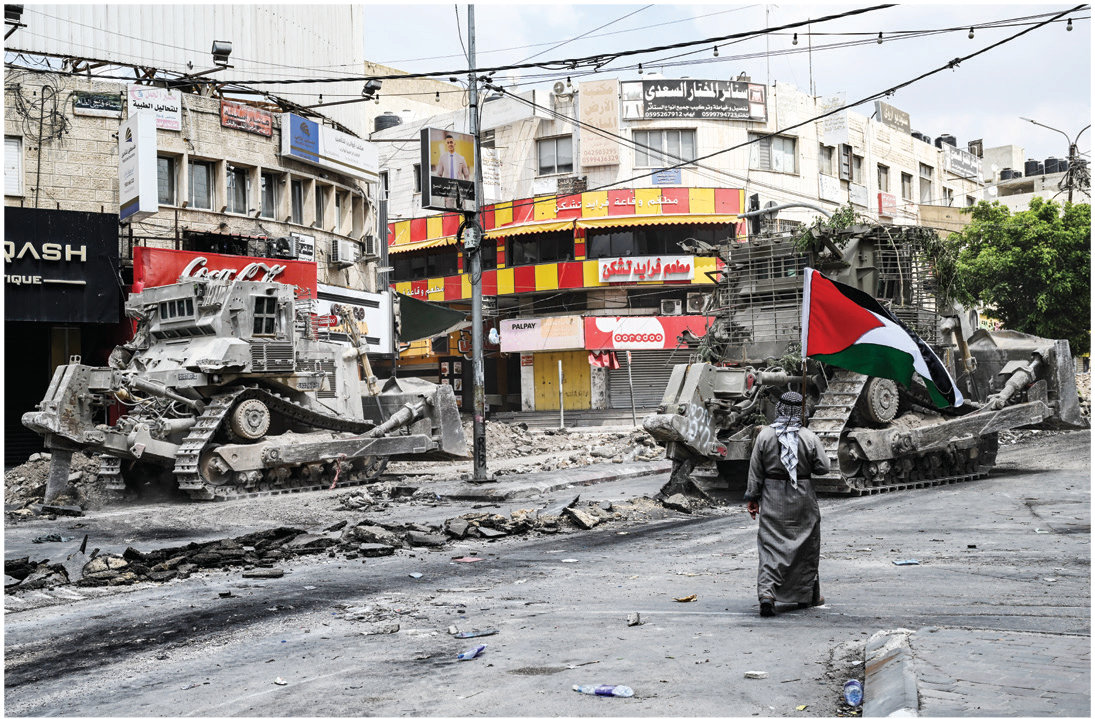
Bulldozers tear up a street during an Israeli raid in the center of Jenin in the occupied West Bank on September 2, 2024. (AFP)
Hamas, whose Oct. 7 attack on southern Israel triggered the ongoing war in Gaza, and Palestinian Islamic Jihad have acknowledged the loss of at least 14 fighters. Since Oct. 7, Israeli troops have arrested some 5,000 Palestinians across the West Bank.
“Operation Summer Camps” was the largest incursion since the early 2000s, when the Second Intifada, or uprising, took place. Authorities said the raids are part of a strategy to prevent Iranian-backed militant groups from launching attacks on Israeli citizens.
Yoav Gallant, the Israeli defense minister, described the roundup of terrorist suspects as “mowing the lawn” but said the threat to Israel would only be fully neutralized once its forces “pull out the roots.”
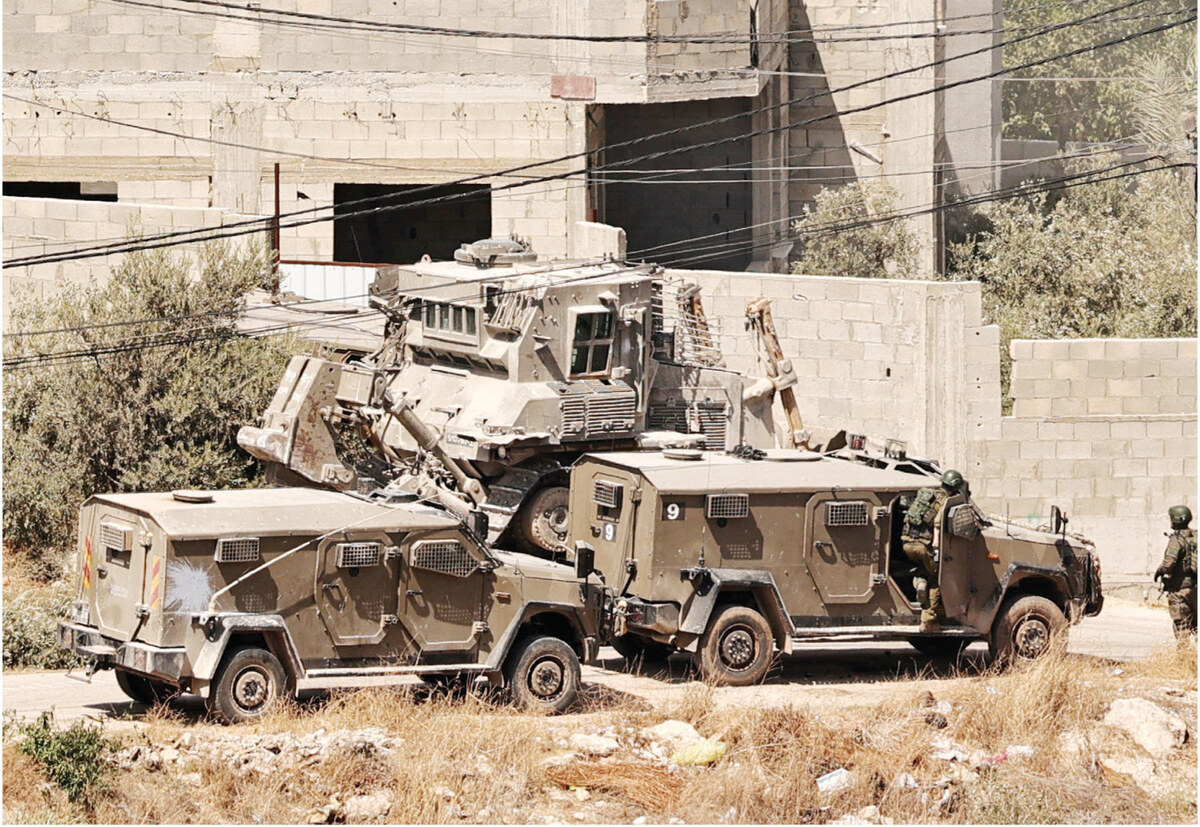
Israeli military vehicles deploy during a house demolition operation in the Palestinian village of Kafr Dan, west of Jenin in the occupied West Bank, on Sept. 3, 2024. (AFP)
“The rise of terror in Judea and Samaria is an issue that we need to be focused on every minute,” Gallant said during a meeting with military officials, describing the West Bank by its biblical name.
Videos of the raids shared on social media show deserted streets and colossal damage to buildings. The UN Human Rights Office has accused Israeli forces of using “unlawful force” and called for an “immediate end” to the operation.
Kamal Abu Al-Rub, the governor of Jenin, said the situation was the “most severe, the most painful and oppressive” in years. He said Israeli troops had mounted 12 major raids in the city since Oct. 7.
Medecins Sans Frontieres, one of the aid agencies operating in the West Bank, said that “repeated attacks by the Israeli military on health workers, ambulances and medical facilities, are severely hindering people’s ability to get access to medical care. There has been very limited medical access in the city of Tulkarm and its refugee camps.”
The organization said its teams had ceased operations in Jenin and Tulkarm, citing restrictions to their movements.
Ori Goldberg, a lecturer at Israel’s Reichman University, regards Prime Minister Benjamin Netanyahu’s actions in the West Bank as an act of desperation designed to rally public support amid mass protests over his handling of the Gaza hostage crisis.
INNUMBERS
• 650 Palestinians killed in West Bank and East Jerusalem since Oct. 7 (Palestinian Ministry of Health).
• 1,300 Attacks by Israeli settlers against Palestinians in Oct. 7, 2023-Sept. 2, 2024 period
Source: UN OCHA
The strategy could be backfiring, however, as the Israeli occupation of the West Bank appears to be “teetering” on the brink of all-out chaos.
“Israeli citizens support the war on terror,” Goldberg told Arab News, referring to the West Bank raids, but “they don’t see the connection between the dead hostages and the Israeli rampage. They think we have to do this. But I don’t think Israel can contain the violence.”
The military operation inside the Jenin refugee camp has left many Palestinian homes damaged or destroyed by army bulldozers and pavement stripped from roads.
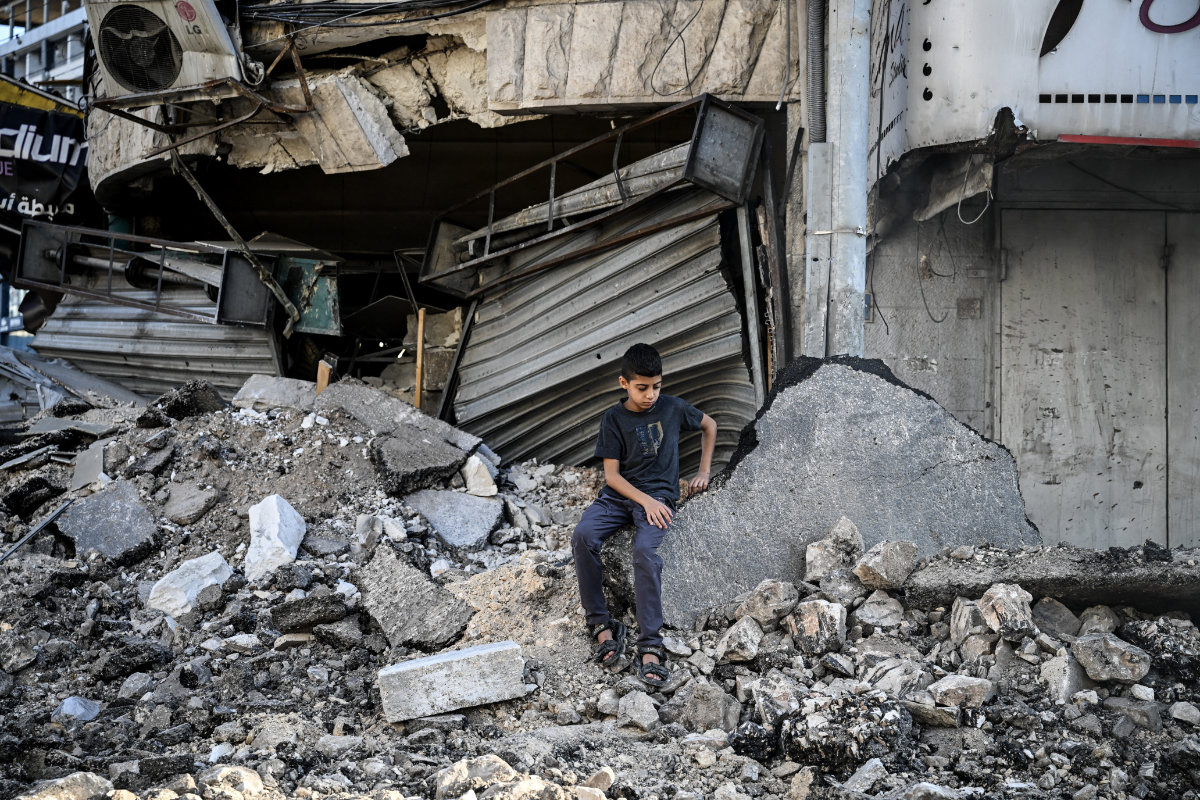
A Palestinian boy sits on the rubble of a damaged shop, next to a street that was torn up by bulldozers during an Israeli raid in the center of Jenin in the occupied West Bank on Sept. 2, 2024. (AFP)
On Friday, agencies said residents used bulldozers of their own to begin clearing the rubble after Israeli armored vehicles left.
Israel has occupied the West Bank since 1967 and its forces regularly make incursions into Palestinian communities, but the latest raids as well as the hawkish comments by Gallant signaled an escalation, residents told AFP news agency.
The Israeli military has maintained a strong footing in the occupied territory for decades to protect the roughly 500,000 Israeli citizens living in settlements there.
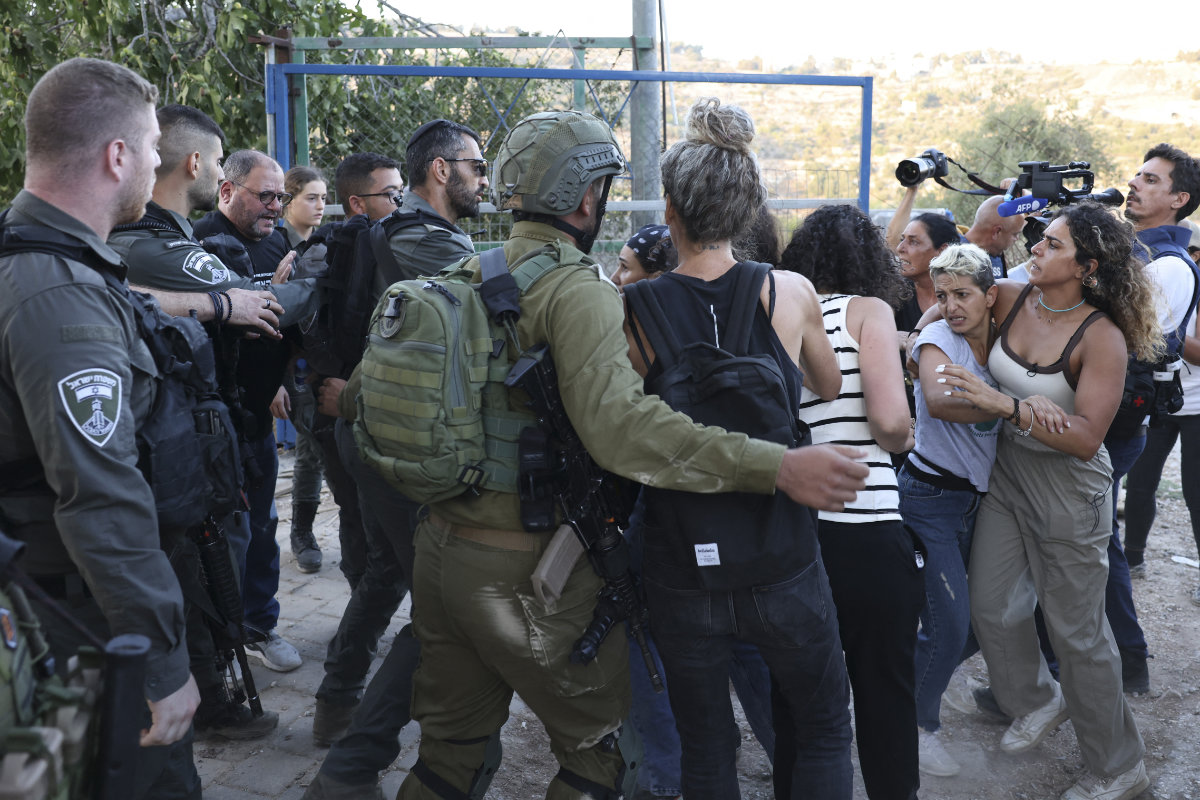
Activists confront Israeli land-grabbers who tried to build a new outpost in the land of the Kisiya family in al-Makhrour, occupied West Bank, on August 22, 2024. After Israeli security forces turned the settlers away, peace activists and members of the Kisiya family retreated to their makeshift base. (AFP)
Despite international condemnation, the Netanyahu government has allowed illegal settlements to continue to expand across the West Bank.
In March this year, the Israeli government announced it was confiscating an area of roughly 1,980 acres in the northern Jordan Valley with a view to expanding Jewish settlements there.
On Friday, a 26-year-old Turkish American woman was killed in the West Bank during a protest where Israeli forces opened fire. Aysenur Ezgi Eygi was taking part in a protest against settlement expansion in Beita, a town near Nablus.
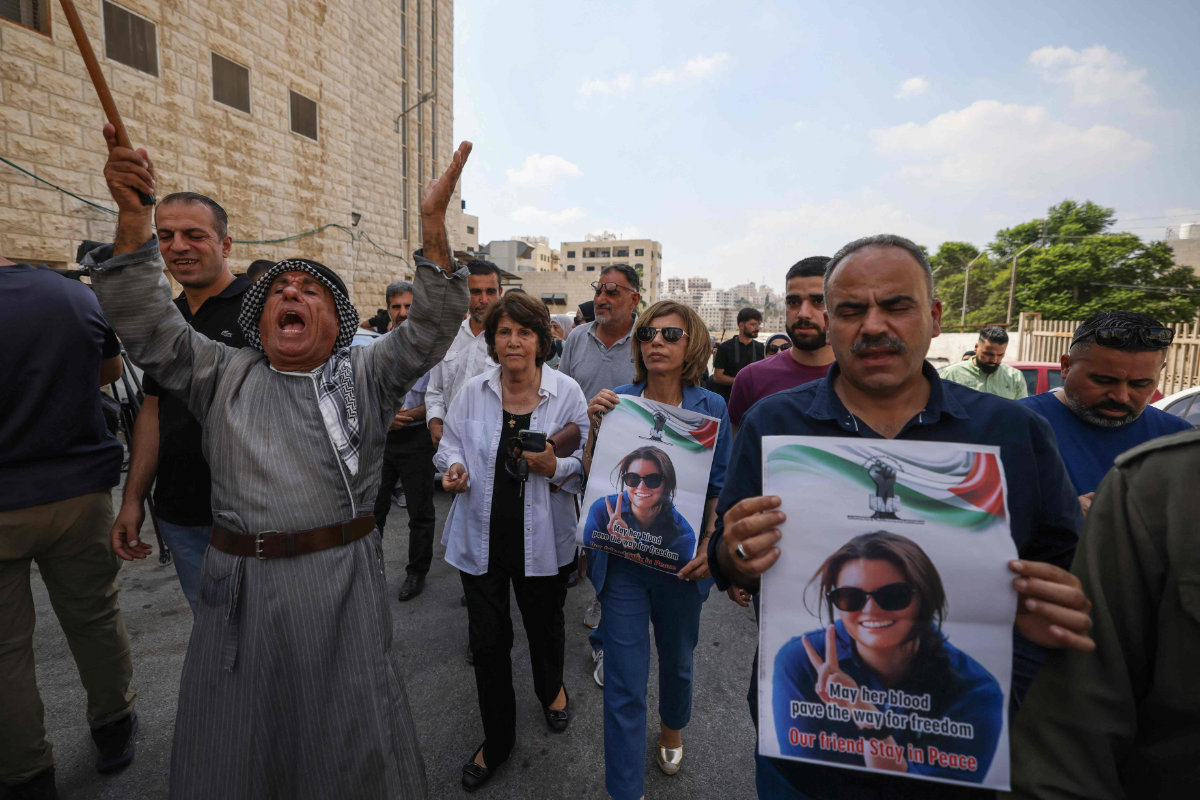
Palestinians and international activists carry portraits of slain Turkish-American activist Aysenur Ezgi Eygi, a member of Turkish-American International Solidarity Movement, who was shot dead on Sept. 7, 2024, while demonstrating against Israeli settlements in Beita in the occupied West Bank. (AFP)
Settler violence in the area also is nothing new. However, there has been a sharp increase in the number of attacks on Palestinians since the war in Gaza began.
According to the UN Office for the Coordination of Humanitarian Affairs, there were at least 1,300 attacks between Oct. 7 and Sept. 2 this year.
The raids and settler violence have been taking place against the backdrop of the war in Gaza, which has left more than 40,000 Palestinians dead, according to Gaza’s health ministry, and created a major humanitarian crisis.
Despite international pressure, Netanyahu has resisted calls to strike a ceasefire deal with Hamas, which would see the return of the remaining hostages, the release of Palestinian prisoners, and an end to the fighting.
Opinion
This section contains relevant reference points, placed in (Opinion field)
Last week, Netanyahu presented a plan that included the destruction of the Netzarim Corridor — an 8-km stretch of land that connects the Mediterranean Sea with the former Karni crossing in northeastern Gaza.
He said reconstruction would not be permitted and that Palestinians would not be allowed to return to their homes in northern Gaza to prevent Hamas from establishing “nests” in the area.
Meanwhile, the Philadelphi Corridor, which separates Gaza from Egypt, would remain under Israeli control, and a third corridor would be built between Khan Younis and Rafah, which would also be under Israeli military control.

Israeli PM Netanyahu holding a press conference explaining his plan to put the so-called Philadelphi Corridor, which separates Gaza from Egypt, under Israeli control tok contain Hamas. (AFP)
What was perhaps more striking about the map used by Netanyahu during his news conference, however, was that the West Bank appeared to be completely annexed by Israel.
Asked by a reporter to elaborate on this, Netanyahu said: “I didn’t get into that. I was talking about Gaza. There is a whole issue of how to achieve peace between us. That’s another press conference.”
Whether Netanyahu’s government intends to open a new front in its war with the Palestinians and seize complete control of the West Bank remains unclear.
Reichman University’s Goldberg is skeptical about Netanyahu’s appetite for risk given the magnitude of unfinished business both in Gaza and the Lebanon border. “I doubt that Israel will bring larger forces into the West Bank,” he said. “It cannot afford to lose on yet another front.”































